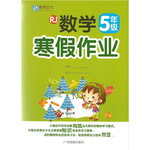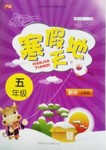题目内容
One cannot learn a language well ________ by learning rules of its grammar.
A.gradually B.deeply C.merely D.extremely
C

 黎明文化寒假作业系列答案
黎明文化寒假作业系列答案 寒假天地重庆出版社系列答案
寒假天地重庆出版社系列答案I’ve been writing for most of my life. The book Writing Without Teachers introduced me to one distinction(区别)and one practice that has helped my writing processes tremendously. The distinction is between the creative mind and the critical mind. While you need to employ both to get to a finished result, they cannot work in parallel no matter how much we might like to think so.
Trying to criticize writing on the fly is possibly the single greatest barrier to writing that most of us encounter. If you are listening to that 5th grade English teacher correct your grammar while you are trying to capture a fleeting (稍纵即逝的) thought, the thought will die. If you capture the fleeting thought and simply share it with the world in raw form, no one is likely to understand. You must learn to create first and then criticize if you want to make writing the tool for thinking that it is.
The practice that can help you past your learned bad habits of trying to edit as you write is what Elbow calls “free writing.” In free writing, the objective is to get words down on paper non-stop, usually for 15-20 minutes. No stopping, no going back, no criticizing. The goal is to get the words flowing. As the words begin to flow, the ideas will come from the shadows and let themselves be captured on your notepad or your screen.
Now you have raw materials that you can begin to work with using the critical mind that you’ve persuaded to sit on the side and watch quietly. Most likely, you will believe that this will take more time than you actually have and you will end up staring blankly at the pages as the deadline draws near.
Instead of staring at a blank start filling it with words no matter how bad. Halfway through your available time, stop and rework your raw writing into something closer to finished product. Move back and forth until you run out of time and the final result will most likely be far better than your current practices.
【小题1】When the author says the creative mind and the critical mind “cannot work in parallel” in the writing process, he means .
| A.one cannot use them at the same time | B.they cannot be regarded as equally important |
| C.they are in constant conflict with each other | D.no one can be both creative and critical |
| A.putting their ideas in raw form | B.ignoring grammatical soundness |
| C.attempting to edit as they write | D.trying to capture fleeting thoughts |
| A.To organize one’s thoughts logically. | B.To get one’s ideas down. |
| C.To choose an appropriate topic. | D.To collect raw materials. |
| A.it overstresses the role of the creative mind | B.it does not help them to think clearly |
| C.it may bring about too much criticism | D.it takes too much time to edit afterwards |
| A.It allows him to sit on the side and observe. | B.It helps him to come up with new ideas. |
| C.It saves the writing time available to him. | D.It improves his writing into better shape. |